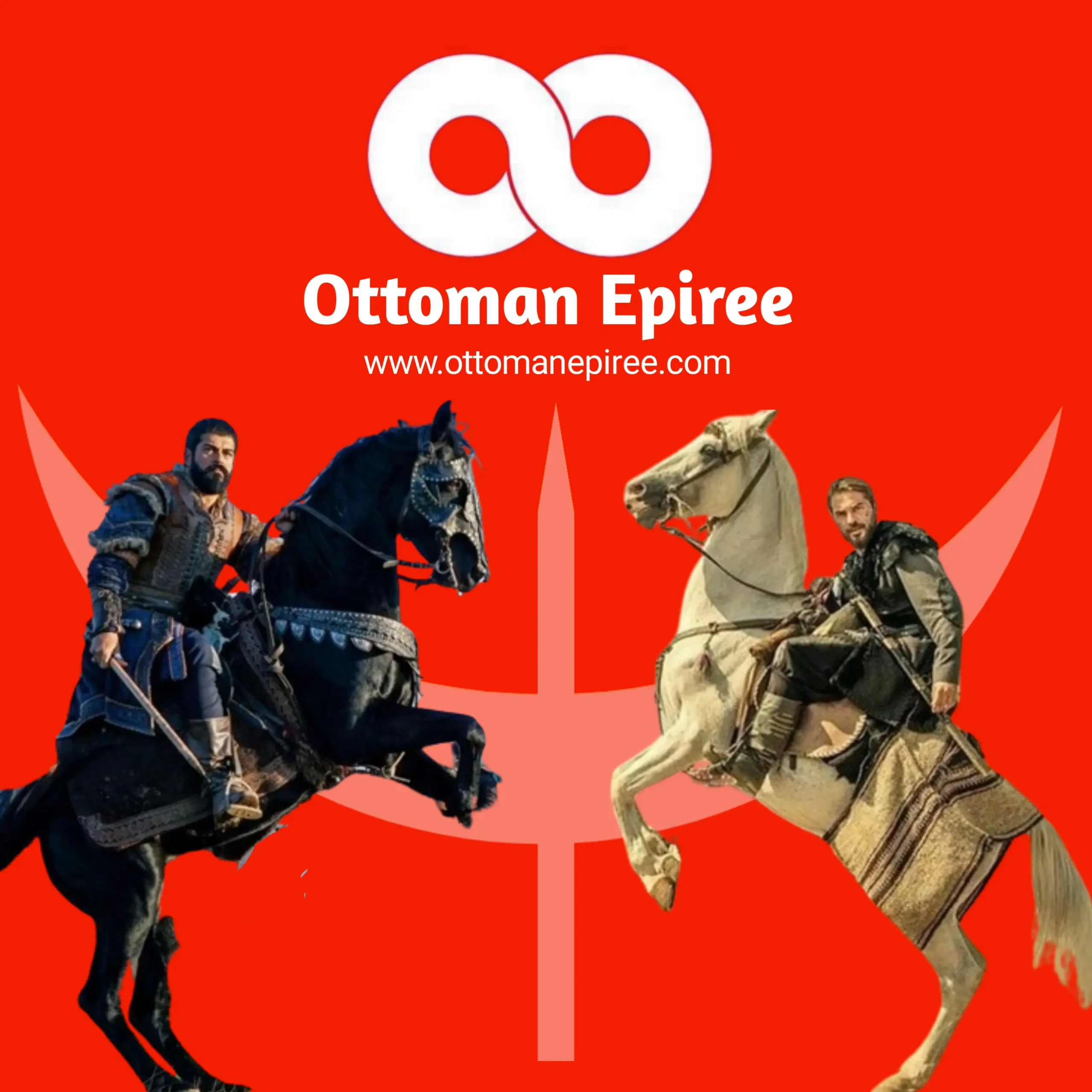Kudus Fatihi Selahaddin Eyyubi Season 2 Episode 39
Saladin’s Journey with Countess Mila
Kudus Fatihi Selahaddin Eyyubi Season 2 Episode 39
Episode 39 begins with a surprising alliance. Saladin accepts the proposal of Countess Mila and sets out with her to liberate Kerak from the tyranny of Chatillon. This moment reveals Saladin’s ability to put aside personal differences and think strategically for the greater good. By agreeing to work with Mila, he not only seeks to free Kerak but also demonstrates a willingness to form alliances in order to defeat common threats. This unusual partnership brings new tension to the narrative, as the audience wonders whether trust between these two characters can truly exist or whether their alliance will lead to deeper complications.
Yaruki Blocks Saladin’s Path
As Saladin moves forward with his mission, his progress is suddenly halted by Yaruki, acting under direct orders from Sultan Nur ad-Din. This confrontation reflects the growing unease between Saladin and his former patron. Nur ad-Din demands accountability for Saladin’s independent actions, and the fact that Yaruki intercepts him shows how fragile their alliance has become. Saladin, who had once been the loyal commander of Nur ad-Din, now stands at a crossroads where obedience and autonomy collide. This conflict adds depth to the episode, highlighting that the greatest challenges sometimes arise not from enemies, but from strained relationships among allies.
Saladin’s Burden of Accountability in Damascus
The episode emphasizes that Saladin’s decisions have consequences that reach far beyond Egypt and Kerak. In Damascus, questions and criticisms await him. His rapid rise to power, his reforms in Egypt, and his bold decisions have all created ripples of discontent among those who doubt his intentions. The idea that Saladin must account for his actions in Damascus underscores the theme of accountability in leadership. Even a figure of his stature cannot escape the scrutiny of peers and rulers. This moment builds suspense as viewers anticipate how Saladin will defend his vision and whether his justifications will strengthen or weaken his standing.
King Amalric’s Isolation of Balian
Meanwhile, political tensions escalate in Jerusalem. King Amalric takes harsh measures against Balian by closing all ports and cutting off Ibelin from trade. This blockade not only isolates Balian but also threatens the livelihood of his people. Amalric’s strategy reflects the ruthless nature of medieval politics, where leaders often targeted resources and survival rather than directly attacking armies. By leaving Balian stranded and unsupported, Amalric hopes to crush him without battle. Yet this cruelty backfires, as Balian begins to turn towards Sultan Nur ad-Din for help, setting the stage for a new set of political negotiations.
Balian Appeals to Sultan Nur ad-Din
Stripped of support, Balian has no choice but to appeal directly to Sultan Nur ad-Din. His decision demonstrates how necessity often reshapes loyalties and alliances. In seeking aid, Balian acknowledges the power and influence of Nur ad-Din in the region. This moment also raises important questions: will Nur ad-Din trust Balian’s plea, or will he view it as a political trap? The subplot adds complexity to the story, showing how even enemies of the past can become potential allies in the face of survival.
Nizar the Bedouin’s Ambush
A new character, Nizar the Bedouin, enters the narrative with cunning precision. Familiar with the desert landscape like the back of his hand, Nizar ambushes a grand caravan on its way to Cairo. His attack not only strips the caravan of its wealth but also damages Saladin’s reputation among traders. For a leader who is building his authority on trust, fairness, and stability, this loss is particularly painful. Nizar’s role underscores the vulnerability of rulers who depend on commerce, reminding viewers that economic strength is just as important as military victories in sustaining power.
Rakif’s Manipulative Game
The situation worsens when the traders’ chief, Rakif, arrives to exploit the crisis. With the seized goods in his possession, he offers them back through a supposed gesture of friendship, but his real aim is to undermine Saladin’s credibility. By buying influence and presenting himself as the savior of commerce, Rakif gains an advantage over the vizier. This subplot reveals how political enemies often attack not through direct confrontation but through manipulation, deceit, and the control of perception. For Saladin, the challenge lies not just in reclaiming lost goods but in preserving the trust of the people he leads.
Saladin vs. the Schemes of Rakif and the Caliph
The episode builds suspense as Saladin finds himself cornered by the combined schemes of Rakif and the Caliph. Both figures represent the entrenched power that resists Saladin’s reforms. While Rakif undermines him in trade, the Caliph plays political games from within the palace. This dual pressure places Saladin in a dangerous position where one wrong step could cost him both authority and support. The narrative asks a critical question: can Saladin outmaneuver those who seek to weaken him without losing sight of his mission of justice and unity?
The Question of Egypt’s True Ruler
One of the most thought-provoking themes of Episode 39 is the question of Egypt’s true ownership. Is it the Caliph, who claims divine authority? Is it Rakif, who controls wealth and commerce? Or is it Saladin, who seeks to govern in the name of justice and reform? This struggle for legitimacy reflects the broader challenges of leadership in the medieval Islamic world. By framing the question of power in moral, political, and economic terms, the episode deepens the audience’s understanding of the fragile balance Saladin must maintain.
A Cliffhanger of Leadership and Survival
Episode 39 closes with uncertainty, leaving viewers questioning how Saladin will navigate these overlapping challenges. Will he find a way to break free from the traps set by Rakif and the Caliph? Can he restore trust among traders and strengthen his alliance with Nur ad-Din despite their tensions? The cliffhanger ensures anticipation for the next chapter, reminding the audience that leadership is never secure and every victory is only the beginning of another struggle.
Highlights of Episode 39
| Main Event | Details | Impact on Story |
|---|---|---|
| Alliance with Mila | Saladin accepts Countess Mila’s proposal to free Kerak from Chatillon. | Shows his strategic alliances beyond personal differences. |
| Yaruki Blocks Path | Acting under Nur ad-Din’s orders, Yaruki intercepts Saladin. | Reflects growing tension between Saladin and Nur ad-Din. |
| Balian Isolated | King Amalric blocks Ibelin’s ports, leaving Balian without support. | Forces Balian to seek help from Sultan Nur ad-Din. |
| Nizar’s Ambush | Bedouin Nizar seizes a large caravan headed to Cairo. | Damages Saladin’s reputation among merchants. |
| Rakif’s Manipulation | Rakif returns seized goods as “friendship” to gain power. | Undermines Saladin’s credibility in politics and commerce. |
Summary Kudus Fatihi Selahaddin Eyyubi Season 2 Episode 39
- Saladin joins Countess Mila to free Kerak from Chatillon’s rule.
- Yaruki blocks Saladin under orders from Sultan Nur ad-Din.
- King Amalric isolates Balian by closing Ibelin’s ports.
- Bedouin leader Nizar ambushes a major caravan to weaken Saladin.
- Rakif manipulates traders by offering seized goods back as “friendship.”
FAQs – Kudus Fatihi Selahaddin Eyyubi Season 2 Episode 39
He allies with Countess Mila to break Chatillon’s hold on Kerak.
He acts under Sultan Nur ad-Din’s orders, symbolizing rising tension between Saladin and his patron.
Amalric blocks all Ibelin’s ports, isolating Balian and leaving his people vulnerable.
- Kudus Fatihi Selahaddin Eyyubi Season 2 Episode 38 Rise as Vizier
- Kudus Fatihi Selahaddin Eyyubi Complete Story and Seasons
- Kudus Fatihi Selahaddin Eyyubi Season 2 Episode 37 Cairo Siege and Throne Conflicts
- Kudus Fatihi Selahaddin Eyyubi Season 2 Episode 36 Cairo Conflicts and Strategic Battles
- Selahaddin Eyyubi Season 2 Episode 35 Betrayal, Strategy, and Political Intrigue

